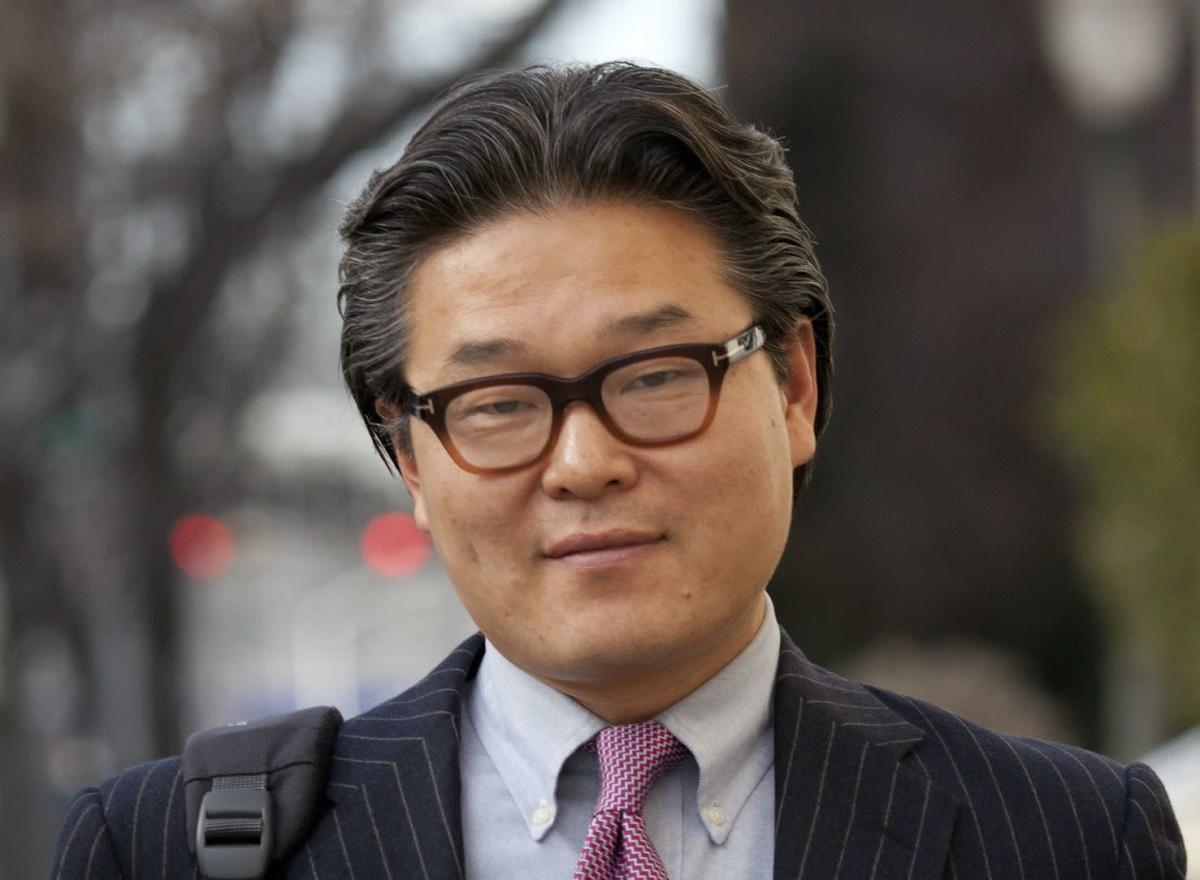Archegos Founder Bill Hwang Hit With Criminal Charges

(Bloomberg) — Archegos Capital Management founder Bill Hwang and Chief Financial Officer Patrick Halligan were arrested and charged with fraud in the latest fallout from the spectacular collapse of the family office.
Most Read from Bloomberg
Federal prosecutors said Hwang used Archegos as an “instrument of market manipulation and fraud,” inflating its portfolio from $1.5 billion to $35 billion before it imploded and caused massive losses for banks, financial market investors and its own employees.
Hwang, 57, and Halligan, 45, were arrested early Wednesday and are expected to appear in Manhattan federal court later in the day.
The two men were charged with 11 criminal counts, including racketeering conspiracy, market manipulation, wire fraud and securities fraud, according to a statement from Manhattan U.S. Attorney Damian Williams. The U.S. Securities and Exchange Commission and the Commodity Futures Trading Commission filed related civil complaints as well.
“Bill Hwang is entirely innocent of any wrongdoing,” his lawyer Lawrence Lustberg said in a statement. “There is no evidence whatsoever that he committed any kind of crime, let alone the overblown allegations that pervade this indictment.” Lustberg said Hwang had been cooperative with investigations into Archegos.
The CFO’s lawyer, Mary Mulligan, said in a statement, “Pat Halligan is innocent and will be exonerated.”
Get caught up on the Archegos story: The Man Who Lost $20 Billion in Two Days Is Lying Low in New Jersey
The indictment unsealed Wednesday said Archegos’s market positions ballooned to $160 billion at one point through a deceptive trading tactic that hid their true size from the market. The positions were inflated with the use of borrowed money and derivative securities that required no public reporting. When the market turned against the positions in March 2021, Hwang directed the fund’s traders to go on a buying spree in an attempt to prop up their price, federal prosecutors charged.
Speaking at a white-collar crime conference in New York Wednesday morning, Deputy U.S. Attorney General Lisa Monaco said the case against Hwang and Halligan “really typifies and exemplifies the focus we are placing on holding individuals accountable when it comes to corporate crime and when it comes to corporate malfeasance.”
Archegos, Hwang’s family office, imploded after amassing a concentrated portfolio of stocks by using borrowed money. It collapsed after some of the shares tumbled, triggering margin calls from banks, which then dumped Hwang’s holdings. Banks lost more than $10 billion, prompting the departures of several senior executives and probes into the way firms monitor the risks run by their businesses serving hedge funds.
Fortunes diverged among the firms that Archegos dealt with: Credit Suisse Group AG, Nomura Holdings Inc. and Morgan Stanley incurred some of the steepest losses. Others, including Goldman Sachs Group Inc., Wells Fargo & Co. and Deutsche Bank AG, escaped relatively unscathed.
Prosecutors said Hwang and Halligan “repeatedly made materially false and misleading statements about Archegos’s portfolio of securities to numerous leading global investment banks and brokerages,” which encouraged them to trade with and extend credit to Archegos, the government said.
Among the securities allegedly manipulated by Hwang were ViacomCBS, Discovery Communications Inc., Tencent Music Group, Texas Capital Bancshares Inc. and Rocket Companies Inc.
The criminal conduct allegedly involved concealing and deceiving the true size of the fund’s positions, liquidity and concentration from counterparties, by spreading the trades around with several different banks. When the banks began asking the fund about the size of its positions, it typically claimed any single holding was no more than 35% of its capital; in truth, prosecutors said, its holdings in Viacom at one point were equivalent to 96% of its capital.
‘Working the Orders’
It also involved buying up shares purely to keep their price aloft, prosecutors charged.
The scheme began to unravel on March 23 of last year, prosecutors said, the day Viacom announced a secondary stock offering. Shares began to decline in anticipation of more stock coming onto the market; Viacom was such a key holding to Archegos that Hwang attempted to defend the price by engaging in “an extraordinary amount of trading” in an effort to overpower the market. Though Halligan questioned the strategy, Hwang told his traders to “just keep working the orders,” according to the indictment. The effort failed.
In addition to Hwang and Halligan, the U.S. named William Tomita and Scott Becker of Archegos as conspirators, though it did not charge them criminally. Tomita and Becker were named as defendants in the SEC suit.
Prosecutors said Hwang typically invested through cash equity purchases until the size of his positions approached 5% of the outstanding shares of a company. Once it neared that threshold, he would then switch to a new method of trading to avoid public disclosure of his holdings.
Using a so-called “total return swap,” he would then enter into contracts with banks that would pay out if share prices increased, but impose costs if they went down. In some cases
his positions equated to more than 50% of the outstanding shares of the companies he invested in, according to the indictment.
According to the SEC complaint, Hwang was aware that Archegos could move the market.
In June 2020, when an Archegos analyst texted him whether the increase in ViacomCBS’s stock price that day was “a sign of strength,” Hwang responded, “No. It is a sign of me buying,” followed by a “tears of joy” emoji.
(Updates with comment by the deputy attorney general.)
Most Read from Bloomberg Businessweek
©2022 Bloomberg L.P.




